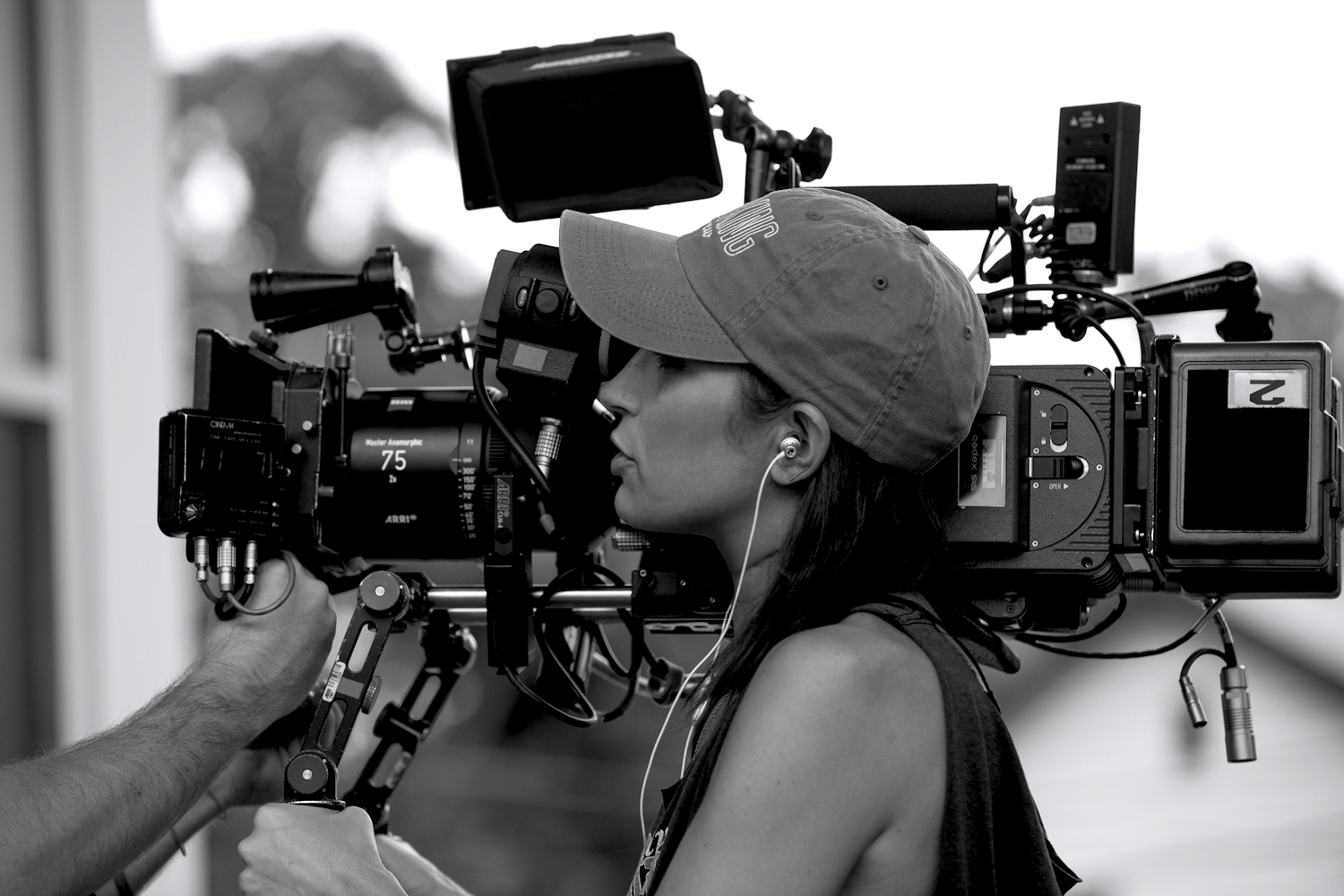BACKSTORY: A visionary cinematographer for sure-sighted indies like The Skeleton Twins and the first season of HBO’s Looking
FROM: Born in Nebraska, but raised and based in New York
YOU MIGHT KNOW HER FROM: Her directorial debut Meadowland, which earned her a nomination for Best Cinematography at the 2016 Spirit Awards
NOW: Back behind the lens for the first season of Vinyl, Martin Scorsese and Mick Jagger’s NYC rock and roll series, and developing her next directorial project, Lioness, starring Ellen Page
The New York Dolls might call it a personality crisis, but for Reed Morano, acting as both the director and cinematographer of a feature film was nothing but instinctual. That’s how she made Meadowland—a transformative drama dealing with the repercussions of loss, and a project that functioned as her directorial debut, turning quite a few heads in the process. One of those impressed was Martin Scorsese, who hired Morano as the lead cinematographer on the first season of Vinyl, his 1970s-set music industry drama series developed for HBO with the help of none other than Mick Jagger. How’s that for too much too soon?
Morano was game for the challenge, of course, and a perfect fit, anyway, for a show about rock stars—particularly since she’s something of one herself. Out of its three-hundred-plus members, she’s one of only fourteen women in the American Society of Cinematographers, and, at thirty-eight, one of the two youngest members in the whole organization. We lucked out on that one, too, since she almost didn’t even go to film school.
“I never really thought, ‘Oh, I could work in movies,’” remembers Morano, “until I was literally applying to college and my dad said, ‘Why don’t you apply to film school at NYU?’ And I was like, ‘That’s a thing you can do?’”
As a film student, Morano initially looked into a variety of disciplines, including directing. But once she got her eye on the solitary responsibility that comes with shooting on actual film, she gravitated more toward the camera itself. “When I went to film school,” she says, “still monitors were not really a thing, so nine times out of ten on those student movies, the only person who was seeing what they were shooting was the [director of photography]—and I thought, ‘Welp, I want that job.’” Fast-forward through a jam-packed post-grad résumé of elite cinematography projects (Frozen River, LCD Soundsystem’s Shut Up and Play the Hits documentary, and Kill Your Darlings, to cherry-pick a few), and that brings us back to Meadowland, and back to directing—an interest that was long-simmering for Morano, eventually manifesting itself as less of a turning point and more of a fully realized version of her career.
“It feels very natural [to be the director and cinematographer] because they go hand in hand.”
“It feels very natural [to be the director and cinematographer],” she explains, “because they go hand in hand. Where the camera is placed, how the light affects the mood, and how personal the journey you decide to take with your subject are all hugely important details that inform how the audience will take what you are giving and how they feel the emotion in that scene.” Ask anyone who’s experienced Meadowland and they’ll surely vouch for that. In the film, the grief of two parents (played by Olivia Wilde and Luke Wilson) is felt in shapes, shadows, and expressions. Or, in its darkest moments, the emotion is conveyed by a visual philosophy that a color as bright as yellow can sometimes be the quickest to fade.
“I think every director started as a DP,” says Morano, who is already at work prepping her second feature, Lioness, which will star Ellen Page as Lance Corporal Leslie Martz—a Marine caught between cultures and identities in Afghanistan. That’s right: it’s a story about finding a way to trail blaze through traditionally disparate sensibilities. Hard to imagine a better hand for the helm. FL
This article appears in FLOOD 3. You can purchase the magazine here.









